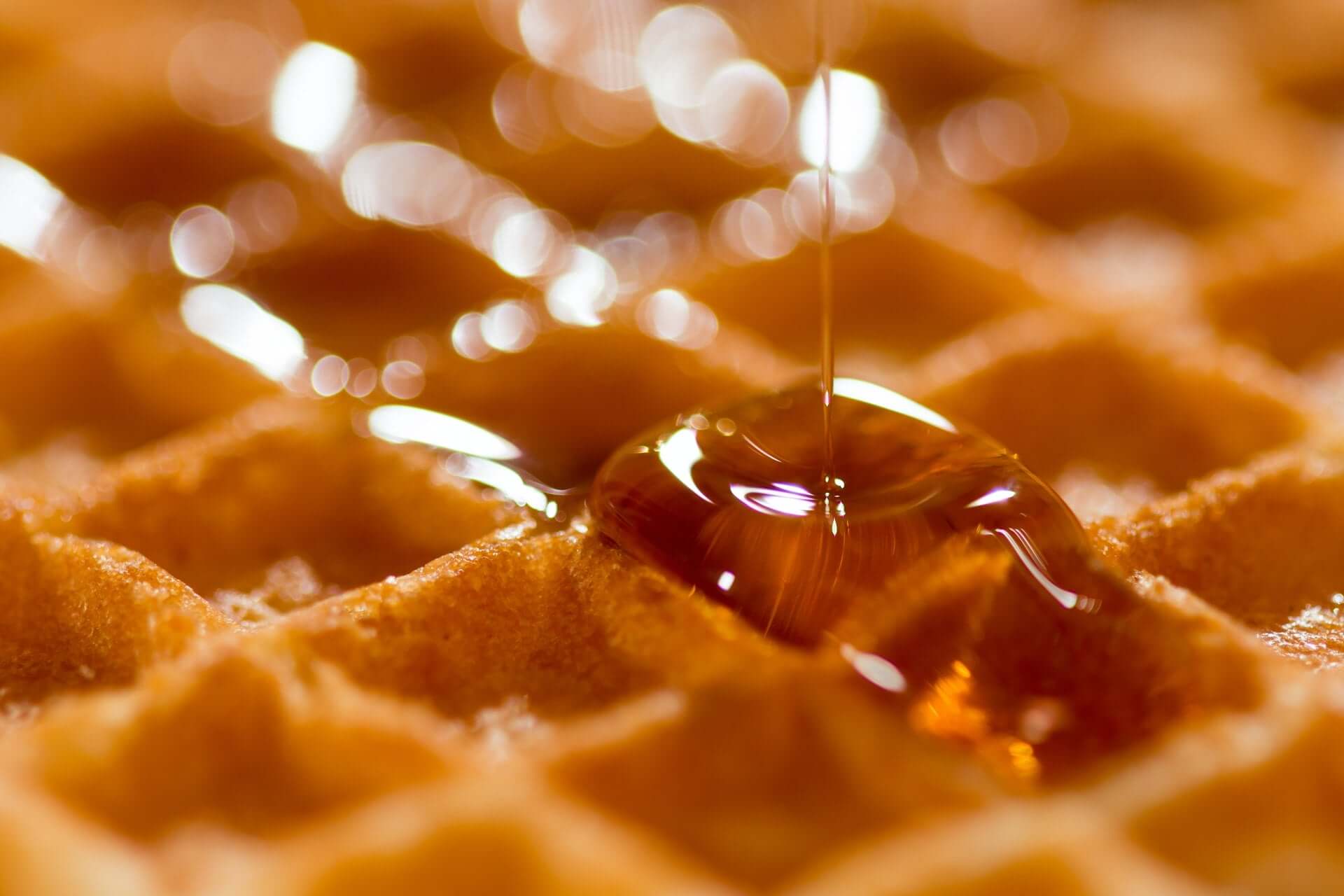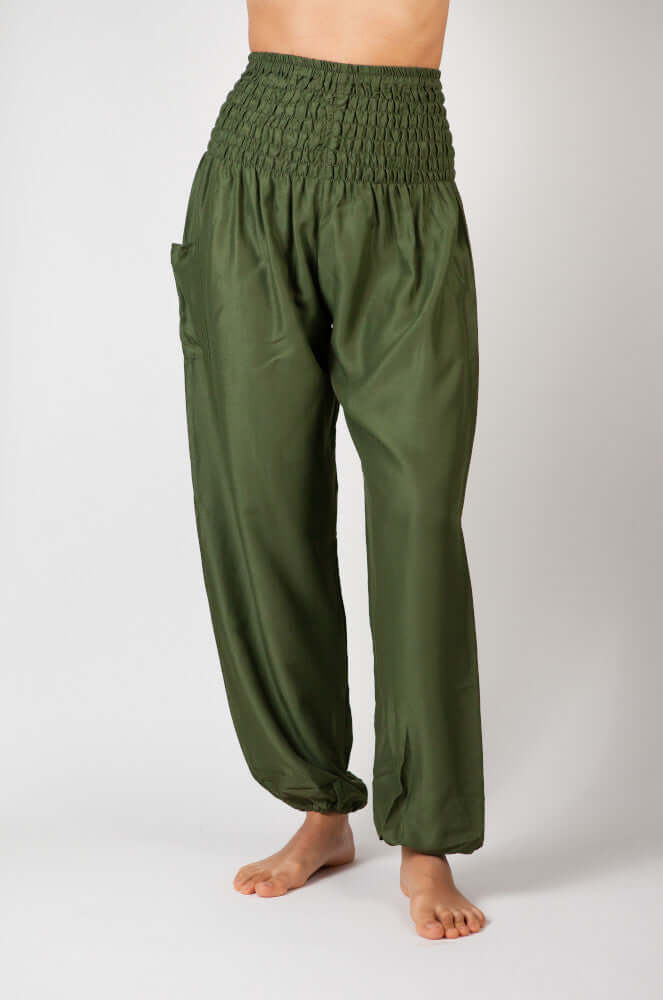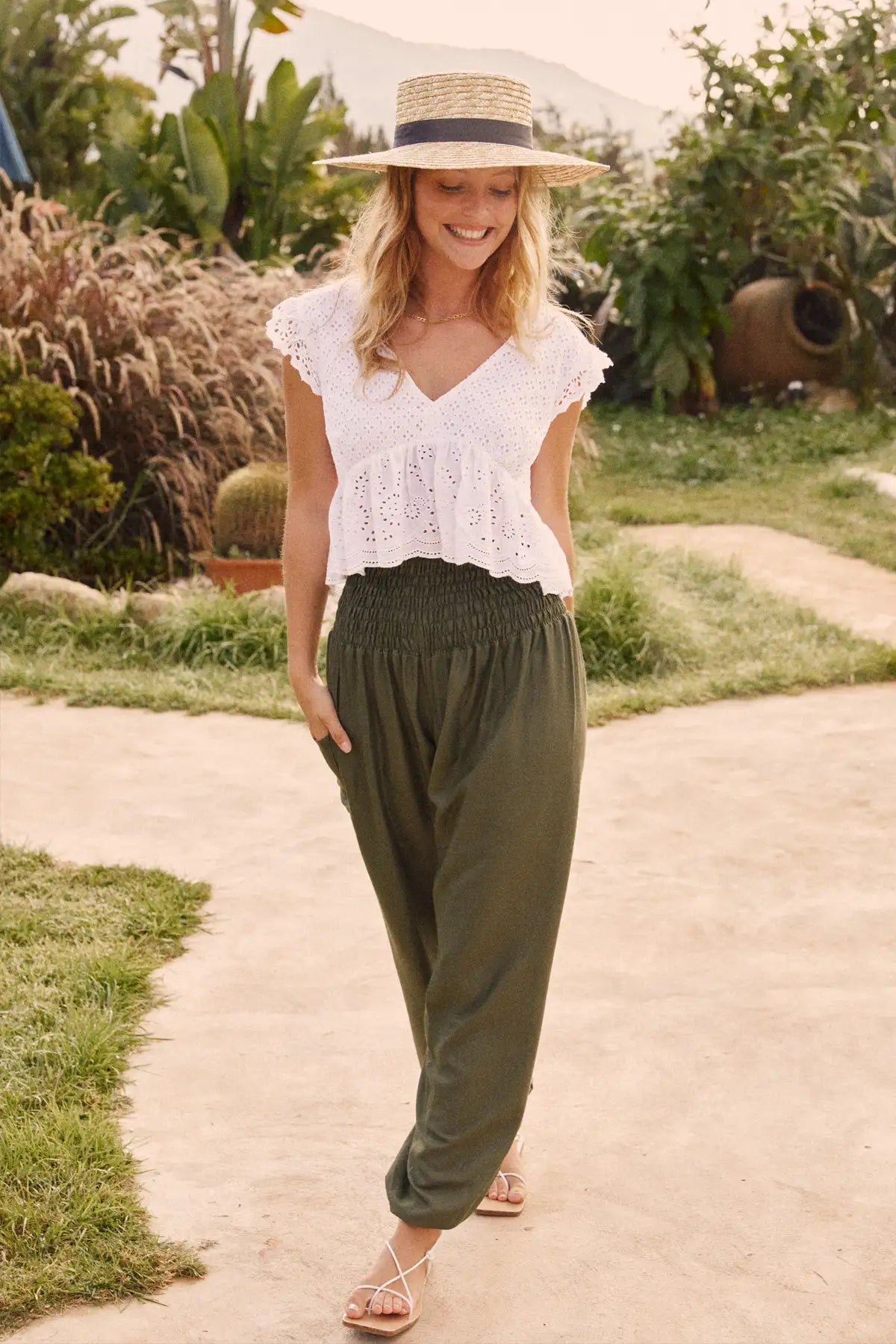
Inhaltsverzeichnis
10 nachhaltige Gewohnheiten, die du einfach in deinen Tag integrieren kannst
Heute stelle ich dir einige simple Nachhaltigkeits-Gewohnheiten vor. Damit reduzierst du nicht nur deinen ökologischen Fußabdruck, sondern sparst in vielen Fällen auch noch Geld – eine win-win-Situation für dich und den Planeten. :)
Einige der Tipps, die ich dir gleich ans Herz legen möchte, erfordern erst einmal ein bisschen kognitiven Aufwand. Damit meine ich, dass man sich am Anfang bewusst Gedanken über das eigene Verhalten und die kleinen Gewohnheiten machen muss, die man von Tag zu Tag auslebt. Manchmal muss man sich auch überlegen, welche Alternativen in Frage kommen könnten. Mit ein bisschen Übung werden all diese Dinge aber zu neuen Gewohnheiten und man denkt quasi nicht mehr drüber nach. Die Devise hier lautet: Einfach mal ausprobieren!
Denn selbstverständlich kommt es auch auf deine aktuelle Lebenssituation und die Umstände an, unter denen du durch deinen Alltag gehst. Eventuell sind manche der Tipps momentan für dich nicht umsetzbar. Das sollte natürlich keine Entschuldigung dafür sein, nichts zu tun – jede:r tut einfach das, was er:sie kann. Damit können wir schon viel bewegen. 🤗

10 und mehr kleine, nachhaltige Gewohnheiten für deinen Alltag
1. Wasser kochen
Für viele startet der Tag mit einer leckeren Tasse Kaffee oder Tee. Oftmals kochen wir dabei viel mehr Wasser auf, als wir eigentlich benötigen. Das heißt, schon mit unserer täglichen ersten “Amtshandlung” können wir Energie und Ressourcen sparen. Wenn du dein Wasser im Wasserkocher erhitzt, dann benutze deine Tasse zum Abmessen der Wassermenge oder fülle deinen Wasserkocher nur bis zur Minimal-Linie. Es scheint wie eine unbedeutende Kleinigkeit; dennoch kann so einiges an Energie gespart werden. Und für dich bedeutet es quasi null Mehraufwand, sondern nur ein bisschen mehr Achtsamkeit. :)
2. Vorhänge
Die Nutzung unserer Vorhänge und Gardinen kann eine große Auswirkung auf die Hitzeregulation in unserem Zuhause haben. In den Wintermonaten unserer Breitengrade ist die Heizung unsere beste Freundin – und das ist auch kaum zu umgehen. Trotzdem kann man darauf achten, die Vorhänge an Fenstern, an denen die Sonne vorbeizieht, tagsüber geöffnet zu lassen. Die einkommenden Sonnenstrahlen wärmen stärker, als man denkt! Andersherum sollten genau diese Fenster im Sommer den Tag über möglichst verdeckt werden. Damit können die Innenräume gekühlt werden, ohne auf Ventilatoren oder Klimaanlagen zurückgreifen zu müssen. An den Tagen, an denen ich vergesse, mich um meine “Vorhangsituation” zu kümmern, merke ich immer einen riesigen Unterschied in der Temperatur in den Räumen!
3. Lebensmittelabfälle
Die Menge an Lebensmitteln, die im Müll landen, ist immer noch ein riesiges Problem. Ich habe bereits einen ausführlichen Blogpost über die Thematik von Lebensmittelabfällen geschrieben, daher greife ich hier nur kurz das wichtigste auf.
Checke deinen Kühlschrank und schaue in deinen Vorratsschränken nach, bevor du einkaufen gehst. So vermeidest du, zu viel einzukaufen. Vorausschauende Essensplanung ist auch super, um übermäßiges Horden von Gemüse und Obst zu vermeiden (die ja leider am häufigsten im Müll landen, weil sie nicht rechtzeitig verzehrt werden). Es bietet sich auch an, regelmäßig (z.B. einmal pro Monat) die Vorräte nach Haltbarkeitsdatum zu “sortieren” (Produkte, deren Mindesthaltbarkeitsdatum in der näheren Zukunft liegen, wandern nach vorne im Regal oder Kühlschrank). Oftmals vergessen wir auch, dass sich super viele Lebensmittel einfrieren lassen; das kann also auch eine super Lösung sein.
Extra-Tipp: Eine nachhaltige Alternative zu Frischhaltefolie sind Bienenwachstücher (vegane Alternative: “Pflanzenwachstücher”), die mehrmals verwendet werden können und die man mittlerweile sogar in Drogerie-Märkten und Bio-Läden bekommen kann. Unbedingt ausprobieren!
4. Saisonal, regional und pflanzlich essen
Wann immer möglich, versuche ich saisonal, regional und natürlich pflanzlich zu essen. Auch zu dieser Thematik findest du so einiges auf unserem Blog, von veganen Rezepten über natürliche Fleischalternativen, die du kennen solltest, bis hin zu Tipps für eine nachhaltige Ernährungsweise im Allgemeinen. Wenn du ein großer Fleisch-Fan bist, dann sind zum Beispiel “Fleisch-Freie-Freitage” ein super Anfang. Jeder Schritt in Richtung eines gesteigerten Bewusstseins ist wichtig und gut!
5. Wasser sparen in der Küche
Mal abgesehen vom Wasserkochen an sich (siehe Tipp Nummer eins) gibt es natürlich noch mehr Möglichkeiten, in der Küche Wasser zu sparen. Dazu zählt einmal, den Hahn abzudrehen, wann immer es möglich ist. Aber das brauche ich glaube ich nicht großartig zu erwähnen. :) Einen anderen Tipp habe ich mir von einer Freundin abgeguckt: Wenn sie Gemüse oder Obst wäscht, stellt sie eine Schüssel in die Spüle, die das Wasser auffängt. Damit gießt sie dann ihre Zimmerpflanzen und auch die Pflanzen im Garten. Dasselbe geht auch wunderbar mit ungesalzenem Wasser, welches man fürs Kochen aufgeheizt hat (das aber bitte vorher erst abkühlen lassen!).
6. Kompostieren
Lange Zeit habe ich das Kompostieren für mich als irrelevant betrachtet, weil ich ja in einer Wohnung wohne und über keinen Garten verfüge. Erst das Internet hat mich gelehrt, dass für einen Kompost gar kein Garten notwendig ist. Natürlich ist ein Kompost im Außenbereich praktisch und im größeren Stil möglich – aber auch drinnen oder auf dem Balkon kann man mit dem Kompostieren starten. Die einfachste Möglichkeit ist eine kleine Kompostiertonne für die Küchenarbeitsplatte. Wer einen Balkon hat, kann sich an einer Wurmkiste ausprobieren. Wenn du dich in das Thema einlesen möchtest, kann ich dir neben Google auch Pinterest empfehlen – hier findet man viele Erfahrungsberichte und “Insidertipps” dazu!
7. Ofen vorheizen
Gehen wir noch ein letztes Mal Richtung Küche und einer Sache, die mich irgendwann so gestört hat, dass ich einfach etwas ändern musste. Kennst du das – Du kochst nach Rezept und rechnest mit 15 Minuten Vorbereitsungszeit, bis die Mahlzeit in den Ofen muss. Immerhin steht es ja so im Rezept. Perfektes Timing also, um den Ofen schon mal vorzuheizen. Wie immer dauert die Vorbereitung mitsamt Schnibbeln von Gemüse und Kräutern aber länger, als gedacht. Der Ofen dampft vor sich hin – und verschwendet eine Menge Energie.
Wann immer ich also in einem Rezept als ersten Schritt lese “Ofen auf xy Grad vorheizen”, lasse ich es. Das bedeutet nicht, dass ich den Ofen gar nicht vorheize – sondern eben einfach später. Zur Not warte ich dann eben noch ein paar Minuten mit dem fertig vorbereiteten Essen – besser, als den Ofen so lange nebenher laufen zu lassen. In vielen Fällen macht es übrigens auch nichts aus, das Essen schon in den Ofen zu schieben, bevor dieser komplett fertig vorgeheizt ist. Länger drin lassen kann man das Essen im Zweifelsfall immer noch...
8. Putzen
Schwämme, Tücher und Bürsten aus Plastik sind günstig und praktisch. Aber leider nicht so dolle für die Umwelt. Denn bei jedem Male der Benutzung gelangen kleinste Plastikpartikel aus dem Produkt ins Wasser. Die Alternative: Putzhelferlein aus Holz oder Zellulose, die teils sogar biologisch abbaubar sind. Solche Produkte findet man häufig in Biomärkten, aber auch in gut sortierten Drogerie-Märkten.
9. Wäsche waschen
Unsere Gewohnheiten beim Wäschewaschen haben oftmals auch einen größeren Einfluss auf die Umwelt, als sie es haben müssten. Zunächst können durch die Materialien unserer Kleidung, ähnlich wie beim Putzen (siehe Tipp 8), Plastikpartikel ins Wasser gelangen. Wann immer möglich sollte also schon beim Kauf neuer Kleidung auf natürliche Materialien gesetzt werden.
In den letzten Jahren ist “kalt waschen” zu einem neuen Trend geworden, weil sich dadurch viel Energie sparen lässt. Schließlich wird ein Großteil der Gesamtenergiemenge beim Wäschewaschen für das Erhitzen des Wassers benötigt. Grundsätzlich ist es also sinnvoll, Wäsche, wenn nicht unbedingt nötig, eher auf einer kälteren Stufe, als auf einer heißen Stufe zu waschen. Man sollte jedoch auch im Hinterkopf behalten, dass einige Bakterien erst ab einer bestimmten Temperatur abgetötet werden (was ja oftmals der Hauptgrund dafür ist, heiß zu waschen).
Eine weitere Möglichkeit ist, auf einen Trockner zu verzichten, da dieser auch bekanntermaßen viel Energie verbraucht. Leinentrocknen for the win!
Wer umweltbewusst(er) waschen möchte, sollte zudem auf Weichspüler verzichten und auf grüne Waschmittel umsteigen.
10. Ressourcen sparen bei Büchern, Spielen, DVDs etc.
Wenn du Kinder hast, die gerne am PC oder an der Konsole spielen, dann kennst du bestimmt die Wunschlisten an Weihnachten oder zum Geburtstag, auf denen ein Spiel nach dem anderen aufgelistet ist. Oder vielleicht bist du auch selbst ein Fan von Games, DVDs, Schallplatten oder ähnlichem. Ich zum Beispiel liebe Bücher sehr.
Was das mit der Umwelt zu tun hat? Nun, all diese Produkte verbrauchen Ressourcen und bestehen in vielen Fällen aus Plastik (Vor allem die Hüllen von Spielen, Blu-Ray-Discs usw.). Und für all diese Produkte gibt es digitale Alternativen, durch die man auf genau diese Ressourcen verzichten kann. Zugegeben, ein physisches Buch oder eine “richtige” Schallplatte hat definitiv mehr Charme als eine mp3-Datei oder ein eBook. Wenn du aber ein wenig mehr auf die “Verschwendung” von Ressourcen achten möchtest, kannst du hier ohne Mehraufwand einen super Anfang machen. Schließlich ist der Wunschzettel auch erfüllt, wenn das Spiel gedownloaded wird, oder? So kann die Spiel-Karte auch nicht mehr verloren gehen und ist jederzeit abrufbar. :)
Wenn du noch mehr über Nachhaltigkeit, gesunde Ernährung, Achtsamkeit oder Familie und Schwangerschaft erfahren möchtest, schaue dir hier noch mehr spannende Blog-Artikel zu diesen Themen an.




























2 Comments
Hallo Luise,
Sparen und Nachhaltigkeit waren bei mir bereits in den 80er Jahren mit 3 Kindern angesagt. Alle “Tricks” die du hier geschrieben hast, sind seit langem ganz normaler Alltag, wie bei meinen Bekannten und Freunden auch. Im Badezimmer lässt sich auch viel sparen. Nur duschen, Wassertemperatur und Wassermenge reduzieren……
Ich mag deine Beiträge sehr.
L.G.
Helga
Helga
Kleinigkeiten, ja; aber die Summe macht’s.
Bzgl. Bücher etc. kann man auch auf vorhandenes zurückgreifen und gebrauchtes kaufen oder das öffentliche Bücherregal nutzen. Dann braucht man bei Büchern zum Lesen allenfalls Strom fürs Licht ;o)
Judith
Leave a comment
This site is protected by hCaptcha and the hCaptcha Privacy Policy and Terms of Service apply.